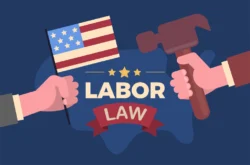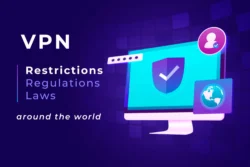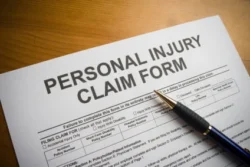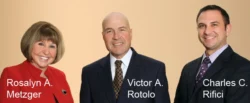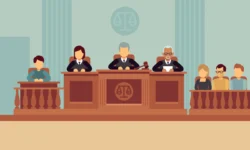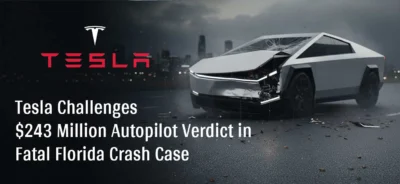
MIAMI, Florida - Aug 30, 2025 (UTC) - Tesla has filed a motion to overturn a $243 million jury verdict that found the company partially liable for a fatal 2019 crash involving its Enhanced Autopilot system, arguing the decision violates Florida tort law and constitutional due process protections. The electric vehicle manufacturer is requesting that a federal judge either throw out the verdict entirely or grant a new trial in what represents the company’s first significant court loss related to its driver-assistance technology.
The legal challenge comes just weeks after a Miami federal jury delivered the groundbreaking verdict on August 1, 2025, determining that Tesla bore one-third responsibility for the tragic crash that killed 22-year-old Naibel Benavides Leon and severely injured her boyfriend Dillon Angulo in Key Largo, Florida. The jury awarded a total of $329 million in damages, with Tesla responsible for paying $242.5 million of that amount.
The Fatal Crash Details
The lawsuit stems from a devastating April 2019 incident on Card Sound Road in Key Largo, where Tesla driver George McGee was operating his 2019 Model S sedan with Enhanced Autopilot engaged during a nighttime commute from his Boca Raton office to his Key Largo home. While making flight reservations on a phone call, McGee dropped his mobile device and bent down to retrieve it, taking his attention off the road.
McGee’s vehicle, traveling at just over 60 mph, accelerated through a stop sign and flashing red light at the intersection with County Road 905, striking a parked Chevrolet Tahoe. The collision caused the SUV to spin and strike Benavides Leon and Angulo, who were standing beside their vehicle on the roadside. Benavides Leon was killed on impact, with her body found approximately 75 feet from the point of collision, while Angulo survived but sustained multiple broken bones, traumatic brain injury, and lasting psychological trauma.
Tesla’s Legal Arguments
In the new court filing submitted by Gibson Dunn law firm, Tesla’s attorneys argue that the jury verdict “flies in the face of basic Florida tort law, the Due Process Clause, and common sense.” The company maintains that McGee’s “extraordinary recklessness” was the sole cause of the crash and that product liability law should not penalize manufacturers when drivers misuse safety features.
Tesla’s legal team contends that Enhanced Autopilot performed exactly as designed and marketed—as a driver assistance system requiring constant driver attention and hands on the wheel. They argue that holding Tesla liable for providing advanced safety features when a driver overrides them sets a dangerous precedent that could “deter innovation, confound consumer expectations, and lead manufacturers to abandon safety enhancements.”
The company’s lawyers also criticized the plaintiffs’ legal strategy, claiming opposing counsel “overwhelmed this jury with a flood of highly prejudicial but irrelevant evidence—about data preservation, Elon Musk, and dissimilar accidents” that prevented the trial from focusing on the actual circumstances of McGee’s crash.
Damage Reduction Requests
Beyond seeking complete dismissal, Tesla is asking the court to significantly reduce the awarded damages if the liability finding stands. The company argues compensatory damages should be cut from $129 million to a maximum of $69 million, which would reduce Tesla’s portion to approximately $23 million.
Tesla is also challenging the $200 million punitive damage award, requesting it be eliminated entirely or capped at three times the compensatory damages in accordance with Florida statutory limits. The punitive damages were specifically designed to deter future harmful behavior by the company.
Plaintiffs’ Response
Lead plaintiff attorney Brett Schreiber dismissed Tesla’s appeal as “the latest example of Tesla and Musk’s complete disregard for the human cost of their defective technology.” Schreiber emphasized that the jury carefully considered all evidence before reaching their shared responsibility verdict.
“The jury heard all the facts and came to the right conclusion that this was a case of shared responsibility, but that does not discount the integral role Autopilot and the company’s misrepresentations of its capabilities played in the crash,” Schreiber stated. He expressed confidence that the court would uphold the verdict, characterizing it not as an attack on autonomous vehicle development but as accountability for Tesla’s specific approach to Autopilot deployment.
Industry Implications
The case represents a watershed moment for Tesla and the broader autonomous vehicle industry. This marks Tesla’s first significant legal defeat in litigation related to its driver-assistance technology, potentially opening the door for additional lawsuits from families affected by Autopilot-related crashes.
The verdict sends a clear message about corporate responsibility in the development and marketing of semi-autonomous driving systems. Legal experts suggest the decision could influence how automakers design, test, and promote advanced driver assistance systems, particularly regarding the balance between automation capabilities and required human oversight.
Tesla’s Autopilot Legal Challenges
This case is part of Tesla’s ongoing legal struggles over Autopilot safety. The company has faced numerous lawsuits and regulatory scrutiny regarding crashes involving its driver assistance systems. Tesla has consistently maintained that its technology enhances safety when used properly and that crashes result from driver misuse rather than system defects.
The company had previously rejected a $60 million settlement offer from the plaintiffs several months before the trial verdict, gambling on a complete legal victory that ultimately failed to materialize.
Next Steps
The federal court in Miami’s Southern District will now review Tesla’s motion to determine whether the verdict should stand, be reduced, or whether a new trial is warranted. The decision could have far-reaching implications for Tesla’s legal strategy in other pending Autopilot-related cases and may influence how courts evaluate liability in semi-autonomous vehicle incidents.
For the families involved, the legal battle continues as they await final resolution of a case that has already stretched over four years since the initial filing in 2021. The outcome will determine not only financial compensation but also establish important legal precedents for the rapidly evolving autonomous vehicle industry.
